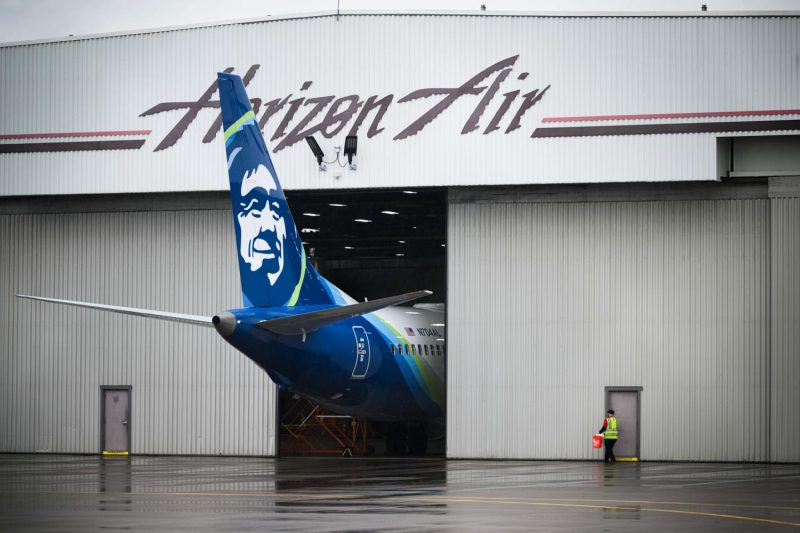In the world of aviation, safety and security are paramount concerns for both manufacturers and operators. However, recent events have raised questions about Boeing’s handling of security camera footage related to the investigation of a door that blew out on a Max jet. The National Transportation Safety Board (NTSB) revealed that Boeing did not retain the security camera footage showing work on the door in question, sparking speculation and concern within the industry.
The NTSB’s revelation that Boeing failed to retain the security camera footage relevant to the investigation of the Max jet door incident has triggered a wave of criticisms and calls for greater transparency and accountability. The incident, which involved a door blowing out during a flight, has underscored the importance of proper documentation and maintenance records in ensuring the safety and airworthiness of aircraft.
Failure to retain crucial security camera footage raises serious questions about Boeing’s commitment to transparency and cooperation with investigative authorities. The NTSB’s statement regarding the missing footage has fueled concerns about potential gaps in the investigative process and the need for more stringent regulations governing the retention of critical evidence in aviation incidents.
Boeing’s handling of the security camera footage has also raised broader questions about the company’s safety culture and corporate responsibility. As a leading aerospace manufacturer, Boeing carries a significant responsibility to uphold the highest standards of safety and security in its operations. The failure to retain key evidence in a high-profile investigation has cast a shadow over the company’s reputation and credibility in the industry.
The NTSB’s findings regarding the missing security camera footage serve as a wake-up call for Boeing and other industry stakeholders to prioritize transparency and accountability in all aspects of aircraft maintenance and safety procedures. Proper documentation and retention of relevant evidence are crucial components of thorough investigations and comprehensive safety measures that can help prevent similar incidents in the future.
Moving forward, it is essential for Boeing to take swift and decisive action to address the concerns raised by the NTSB’s revelation regarding the missing security camera footage. By cooperating fully with investigative authorities and implementing measures to enhance transparency and accountability in its operations, Boeing can rebuild trust and reaffirm its commitment to ensuring the safety and security of its aircraft.
In conclusion, the NTSB’s disclosure that Boeing did not retain security camera footage showing work on the Max jet door that blew out highlights the critical importance of proper documentation and evidence retention in aviation investigations. This incident serves as a reminder of the need for robust safety protocols and a culture of transparency within the aviation industry to prevent future incidents and uphold the highest standards of air travel safety.
